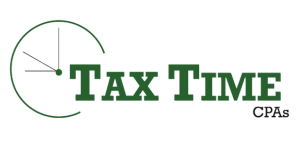Slogging through the summer, and with the weather still hot, it can be tempting to press cruise control for August until Labor Day. But could it be that a rhythm of working a little less might make you more productive?
It’s a pretty counter-intuitive notion; don’t most business owners seek more personal time when they start? For many of us, this notion of freedom was prime among them. Too often what we thought would mean freedom leads us into a kind of bondage we couldn’t predict.
The notion of “80/20” (the Pareto Principle) is worth studying when caught in this cycle of relentless *work*. And I hope to give you some inspiration to that end today.
The Pareto Principle And Productivity
“Everyone is trying to accomplish something big, not realizing that life is made up of little things.” -Frank Clark.
A recent book changed many minds about management. It’s called The 80/20 Manager by Richard Koch. The author cites a fascinating experiment on “forced time off.”
“…(Boston Consulting Group) consultants were obliged to take one day and one evening off. During this time, they could not use email or voice mail. I’m sure you can guess the results. The teams forced to take days and evenings off rated higher on work-life balance, job satisfaction, learning, and personal development. Their level of team communication also improved and their clients reported greater value delivery than the clients.
Less really is more
“I’m waiting for someone to have the courage to test what would happen if a team is forced to take off two or more days. Let’s see what happens when they work just one day and one evening each week.” (page 174)
The Perlow & Porter experiment cited above (and further detailed here: http://hbr.org/2009/10/making-time-off-predictable-and-required/) hints at why this is profoundly true. Faced with the constraint of taking time off, the consultants at BCG suddenly found themselves frequently discussing HOW work was completed, not WHAT work was completed. Their productivity improved!
“People were initially skeptical about spending so much time looking at work processes. But in the end, most teams found it helpful. The check-ins not only allowed teams to engage in explicit conversations about achieving their time-off goals, but they also sparked valuable discussions–involving the whole team–about priorities, expectations, and problems people were facing.
“In typical teams, consultants generally start talking about problems only when they are already overstressed and less able to think rationally or do much about them.”
Re-read that last sentence.
Killer of Productivity
The always-on, smartphone-addicted lifestyle of the average Douglas County business owner makes it LESS likely that you will think rationally about the strategic decisions you need to make in your business.
But forcing yourself to take time off, one evening a week, then one day a week — and perhaps yes, as Mr. Koch recommends, even 4 days a week — will force you to make clearer more strategic decisions.
Working less CAN equal earning more.
It’s an equation that seems to violate everything we’ve been told about work … we’ve been told that you work your tail off, lay aside a bunch of profit and then some beautiful day in the future, well, you’ll be able to work less.
But could this entire paradigm be wrong?
“Working less = earning more” is an equation that I believe must be considered by the digitally-connected business owner who wants to take their Douglas County business to the next level.
So, take one day off next week as a test. I wonder what would happen?

